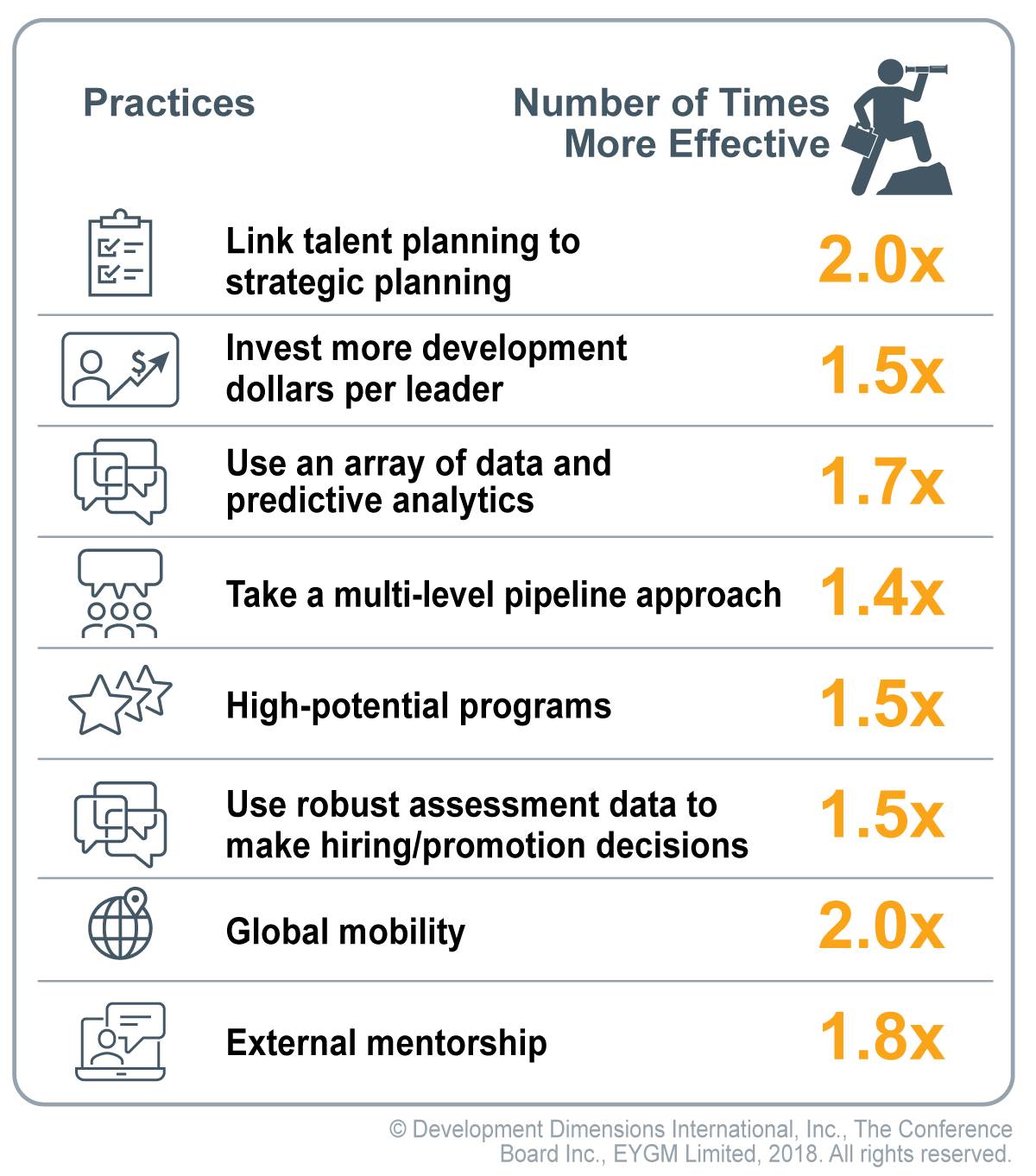by Bruce Court
It’s no secret that human resources isn’t always the most popular department at any organization. Unfortunately, when we conducted our Global Leadership Forecast 2018, we found that HR is failing to embrace a new role, one that we labeled as “anticipator,” which has become critical for HR to be seen as successful. The other two roles we see, the reactor and partner, are more commonplace in HR, but, for human resources to be effective now and into the future, leaders in HR must reframe their approach.
At DDI we define the roles HR plays as follows:
Reactor: Sets and ensures compliance with policies; responds to business needs; installs basic initiatives to manage talent.
Partner: Works toward mutual goals with line managers; shares information with the business about talent issue gaps; provides HR solutions.
Anticipator: Uses analytics to forecast talent needs; provides insights and solutions to ensure high-quality supply of talent; links talent planning to business planning; prioritizes being strategic.
While we acknowledge that every HR professional must perform tasks associated with each role, to meet the future needs of the business and to remain credible, they need to increase the focus on the anticipator practices to manage talent strategically.

A deeper dive into the research
Within the Global Leadership Forecast 2018, we looked at the different talent practices for Reactors, Partners, and Anticipators, with the aim of identifying the practices that differentiate Anticipators from Partners. The table below highlights the eight practices that Anticipators do more effectively than Partners.
As you can see, many leaders report the weakest link is the connection between talent planning and strategic planning. In addition, only 28 percent of more than 2,500 HR professionals surveyed felt that the connection between the two is tight and that the connection starts early in the strategic planning process.
The good news is that technology is now in place to provide predictive analytics, the lifeblood of an anticipator; it is the vehicle that enables HR to demonstrate value earlier in the planning process.
The importance of being an anticipator
The value of Anticipators isn’t a new concept. Part of my father’s role during the Second World War was to be an anticipator. He was assigned to go out into enemy territory in a scout car and gather intelligence on the location and movement of enemy troops and tanks. This information was essential in enabling Allied Command forces to plan and prepare for upcoming battles. If the generals tasked with making the strategic decisions had not had this intelligence, they would have been taking a lot more risks!
One organization we work with is embarking on a journey to transform its HR organization by developing the anticipator skills at every level. To determine whether individuals are being strategic in HR, we defined five behaviors that illustrate what anticipators do and how they can use the intelligence gathered from data and predictive analytics.
1. Planning for the future
All too often we rely on information that tells us where we’ve been and not where we need to go. This is like driving down the highway and only looking in the rearview mirror; an accident waiting to happen. We need to look toward the horizon, starting with where the business is going. For HR, this means scanning what is going on in the world that might impact the business and our ability to provide enough ready-now leaders. This could be anything from trends and innovations to politics and socioeconomic factors.
For example, any organization with operations in the UK needs to consider how Brexit might impact its customers, the organization, and the supply of and demand for people. When scanning the horizon through a business-centric lens, there is an increased awareness of the opportunities and challenges the business will have to face. It would not be unrealistic to say this type of information makes it possible for HR to actively participate in business-centric conversations. More importantly, those in HR may be able to originate the conversation.
2. Execute an effective leadership strategy
Anticipators play a key role in shaping and executing an effective leadership strategy. In the 2018 Global Leadership Forecast, leadership strategy was identified as the forgotten foundation of business planning. The study reported that only 14 percent of HR leaders feel that their organizations have the leadership talent to execute their business strategy. Senior line leaders define leadership strategy as having a supply of capable leaders who can meet both the short and (ever-changing) long-term business needs. Why is this important? Because 86 percent of organization don’t have the leaders who are prepared to meet the organization’s business challenges.
Organizations that formulate and execute an effective leadership strategy improve HR’s strategic impact and have high leadership quality. Their leadership bench is much stronger, and they can fill critical open positions. This is almost impossible to achieve if HR doesn’t understand where the company needs to be in the next two to three years, enabling them to shape and execute the leadership strategy.
Obviously, a leadership strategy should never stand alone from a company’s strategic plan. Yet, only one in four HR professionals is involved in strategic planning from its inception. Those who are Anticipators enable HR to speak the language of the business and will dramatically increase the likelihood of being invited to participate earlier in the strategic planning cycle.
3. Use data to improve company culture
An Anticipator can drive change and act as a catalyst to improve results to impact the culture of the organization. They constantly monitor data from HR systems to make sure that a system is either enabling change or is at least neutral. If any system is creating friction, they can proactively take steps to reduce or eliminate it.
4. Reassure change resisters
Another key role for the Anticipator is to be there for those individuals who might be resisting change. An Anticipator has a good idea of what’s over the next hill and can help prepare those who might be apprehensive. At the end of the day, HR must support the people as the business evolves.
Anticipators can lead the charge by accessing and leveraging data and predictive analytics. They interpret data and identify who needs to be informed about the implications for the leadership and business strategies. They can create and implement appropriate influence strategies using the data to gain commitment and inspire action.
5. Coach others on current and future objectives.
Lastly, being an Anticipator means acting as trusted business advisors, providing expertise and coaching not just on the traditional HR topics, but on current and future business objectives. Systematically leveraging the data and applying predictive analytics enables the business to make informed decisions that impact its bottom-line results.
As organizations embark on their digital journeys we must reset the talent and leadership infrastructures. This means becoming nimbler, data-driven, tech-savvy, and having ties to the rapidly evolving needs of the business. To satisfy this need, HR must step out in advance of the organization and look to the horizon. This is why one of our clients is having members of its global HR organization spend part of their day analyzing information that has implications for where the business is going and thinking about the steps needed to help leaders prepare for the future. They are taking the first steps to becoming Anticipators.
So, what are you going to do today? React, partner, or anticipate?
Check out how DDI can help you improve your strategic talent management.
Bruce Court works with organizations on all aspects of their leadership strategy. He’s experienced in all aspects of strategy development and execution. Outside of work Bruce likes to travel with his wife, Maureen, visiting places on their “bucket list.” He loves eating at great restaurants, and “sampling” good wine and craft beers. Bruce is also a huge fan of smooth jazz.
Topics covered in this blog

